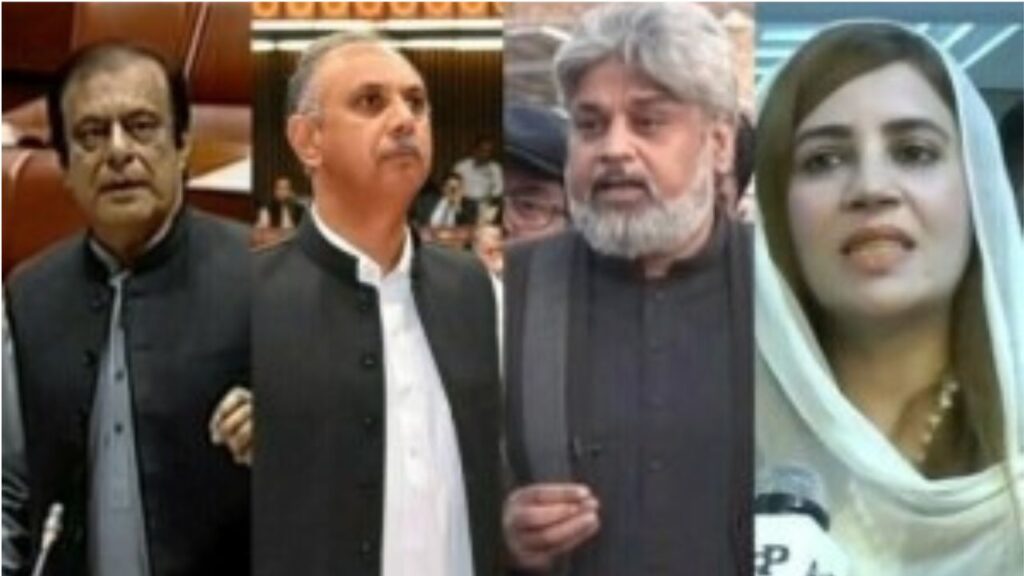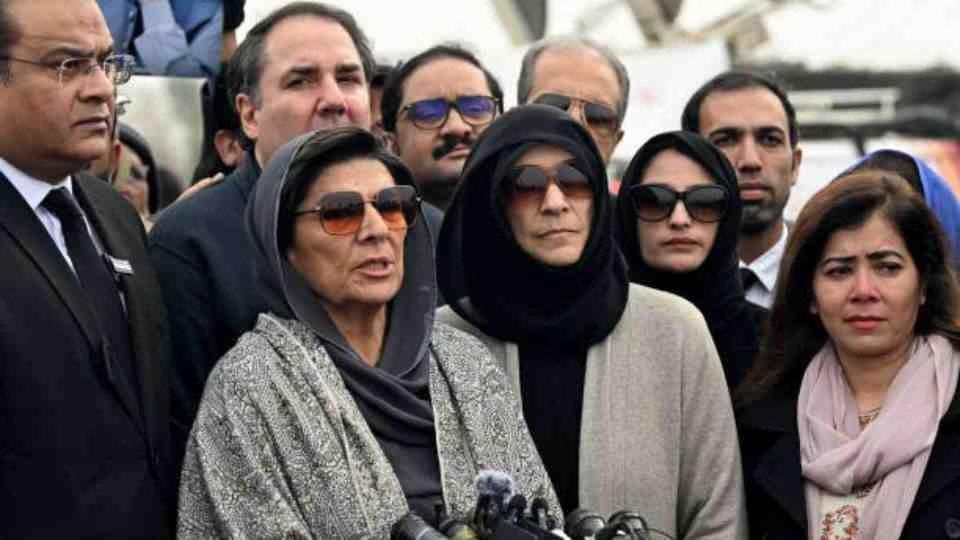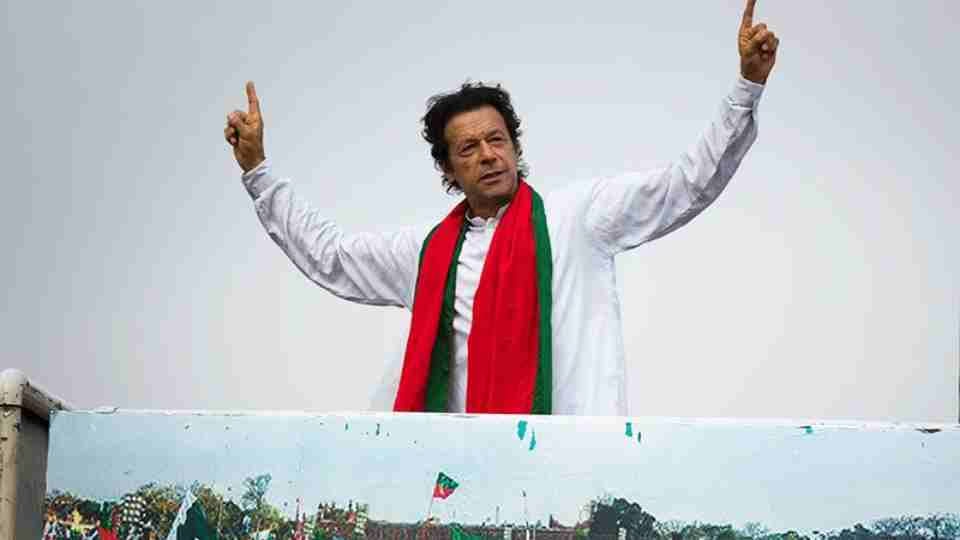Peshawar High Court Issues Stay Order as Political Crisis Deepens Following Mass Convictions
Pakistan’s Peshawar High Court has temporarily blocked the appointment of new opposition leaders in both houses of parliament after the disqualification of Pakistan Tehreek-e-Insaf (PTI) leaders Omar Ayub and Shibli Faraz over their involvement in last year’s violent protests.
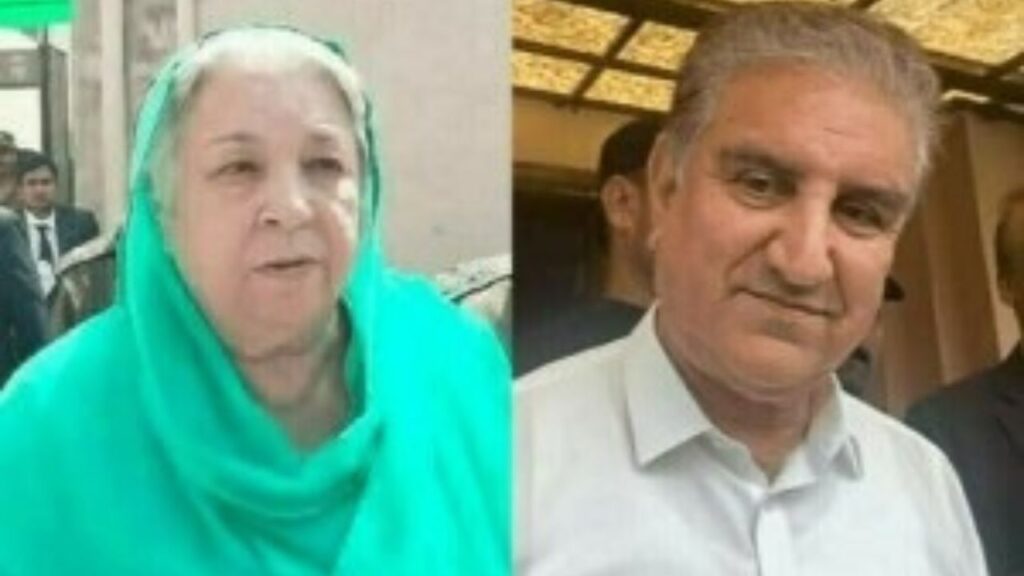
Court Intervention Follows Controversial Disqualifications
A division bench comprising Justices Arshad Ali and Dr. Khurshid Iqbal issued the stay order on Tuesday after hearing separate petitions filed by the disqualified leaders challenging their removal from parliamentary roles.
The court directed authorities to halt any appointments for opposition leader positions in both the National Assembly and Senate, which remain vacant following the August 8 removal of Ayub and Faraz through official notifications.
Election Commission’s August 5 Decision Sparks Legal Challenge
The Election Commission of Pakistan (ECP) had disqualified Ayub, Faraz, and other opposition members on August 5 following their convictions in three separate cases related to the May 9, 2023 riots that erupted after PTI founder Imran Khan’s arrest.
PTI interim chairman Barrister Gohar Ali Khan, representing both petitioners, argued that the ECP’s role becomes irrelevant once someone assumes the opposition leader position, questioning the commission’s authority in the matter.
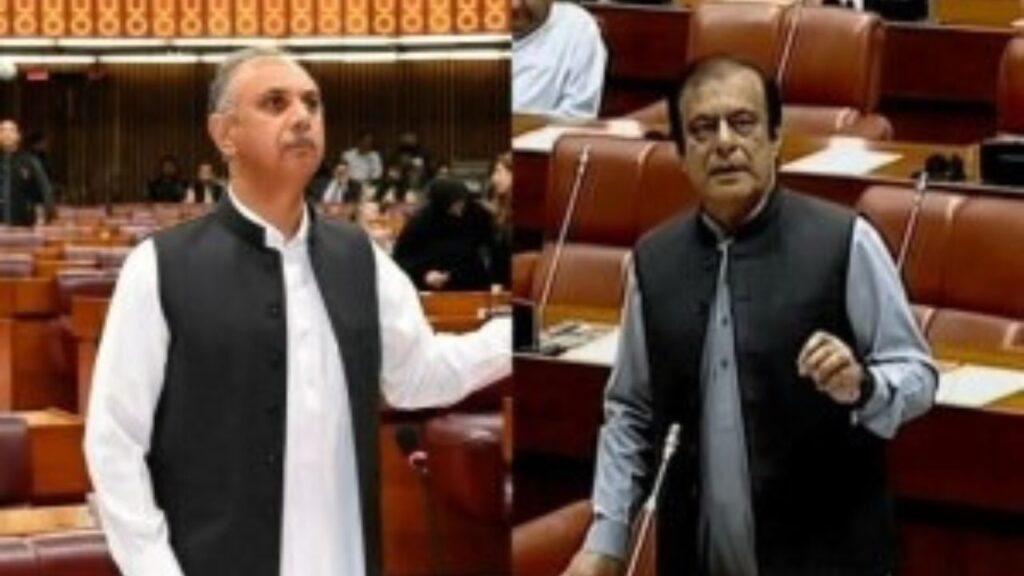
PTI’s Diminishing Parliamentary Presence
During court proceedings, Gohar highlighted the dramatic erosion of PTI’s parliamentary strength, stating: “We won 180 seats, entered the parliament with 90 seats, and are now left with 23.”
The lawyer expressed concern that the government intends to install an opposition leader from another party, requesting the court prevent any further action against the disqualified leaders.
Previous Court Orders Proved Ineffective
This latest court intervention follows an earlier attempt by a PHC bench on August 6 to prevent action against Ayub and Faraz, but the protective order proved ineffective as it came one day after their disqualification had already been implemented.
The same court had granted protective bail to both leaders, along with PTI’s Zartaj Gul, until August 20.
‘Season of Disqualifications’ Must End, Says PTI Leader
Speaking to media outside the court, Gohar called for an end to what he termed the “season of disqualifications,” emphasizing that such measures are not solutions to Pakistan’s political issues.
“I will request everyone to come to their senses now,” the PTI leader stated, while refuting reports of internal party divisions by asserting: “There is no weakness in our team; we are being oppressed.”
Independence Day Protests Planned Despite Government Opposition
Gohar reaffirmed PTI’s commitment to staging nationwide gatherings on August 14 to celebrate Independence Day and demand former Prime Minister Imran Khan’s release, despite government calls to reschedule the protests.
A PTI statement attributed to Khan has designated August 14 as the “next important day” of the party’s renewed protest movement, though Gohar acknowledged the need for dialogue to resolve the ongoing political crisis.
Economic Allegations Amid Political Turmoil
Omar Ayub used his media appearance to highlight Pakistan’s economic challenges, alleging that the current government is “enjoying themselves by burdening the people of Pakistan” with rising inflation.
He claimed massive financial scandals, including “more than Rs500 billion in the petroleum sector” and another “worth Rs2,000 billion which has come to light.”
Constitutional Framework Behind Disqualifications
The disqualifications stem from Article 63(1)(g) of Pakistan’s Constitution, which automatically bars parliament members convicted of crimes involving moral turpitude or corrupt practices from holding office.
This constitutional provision has been applied following the conviction of PTI parliamentarians in cases related to the May 9, 2023 violence that erupted across Pakistan.
Widespread Convictions Following May 9 Violence
The riots, which occurred after Imran Khan’s arrest, led to violent protests throughout the country and resulted in thousands of arrests. The subsequent legal proceedings have produced sweeping convictions across multiple jurisdictions.
A Faisalabad anti-terrorism court sentenced over 100 PTI leaders and workers to jail terms of up to 10 years on July 31, with key opposition figures including Ayub, Faraz, Zartaj Gul, and Sunni Ittehad Council chief Hamid Raza receiving rigorous imprisonment.
Multiple Court Cases Yield Mass Sentences
The convictions span three separate cases registered at different police stations:
Ghulam Muhammadabad Cases: PTI leaders were convicted under sections 109 (punishment for abetment) and 120-B (criminal conspiracy) of the Pakistan Penal Code, with 60 out of 67 accused convicted in one case while seven were acquitted.
Civil Lines Case: 107 out of 108 accused received 10-year sentences, one person got three years, while 77 were acquitted.
Notable Acquittals: Former information minister Fawad Chaudhry, MNA Zain Qureshi (son of PTI Vice Chairman Shah Mahmood Qureshi), MPA Khayal Ahmad Kastro, and Faizullah Kamuka were acquitted in all three cases.
Additional Convictions Across Pakistan
Beyond Faisalabad, courts in other cities have handed down similar sentences:
Lahore: Yasmin Rashid, Omar Sarfraz Cheema, Mian Mehmoodur Rasheed, and other PTI leaders received 10-year rigorous imprisonment for vandalism at Sherpao Bridge, though Qureshi and five others were acquitted.
Sargodha: Dozens of PTI leaders, including former Punjab Assembly opposition leader Malik Ahmed Khan Bhachar, were sentenced in another May 9 case.
Military Court Sentences Add to Legal Pressure
Military courts have also played a role in the legal aftermath, sentencing 85 civilians to up to 10 years on December 21 and 26 last year, including Imran Khan’s nephew Hassaan Niazi.
However, some relief came when mercy petitions for 19 accused were accepted on humanitarian grounds, while 48 other pleas were processed through regular courts.
Political Crisis Deepens
The court’s stay order represents the latest development in Pakistan’s ongoing political crisis, as the country grapples with the legal and constitutional implications of mass disqualifications that have fundamentally altered the parliamentary opposition landscape.
The hearing is scheduled to resume on August 15, with the court seeking replies from the ECP and other respondents, potentially determining the future structure of Pakistan’s parliamentary opposition.

